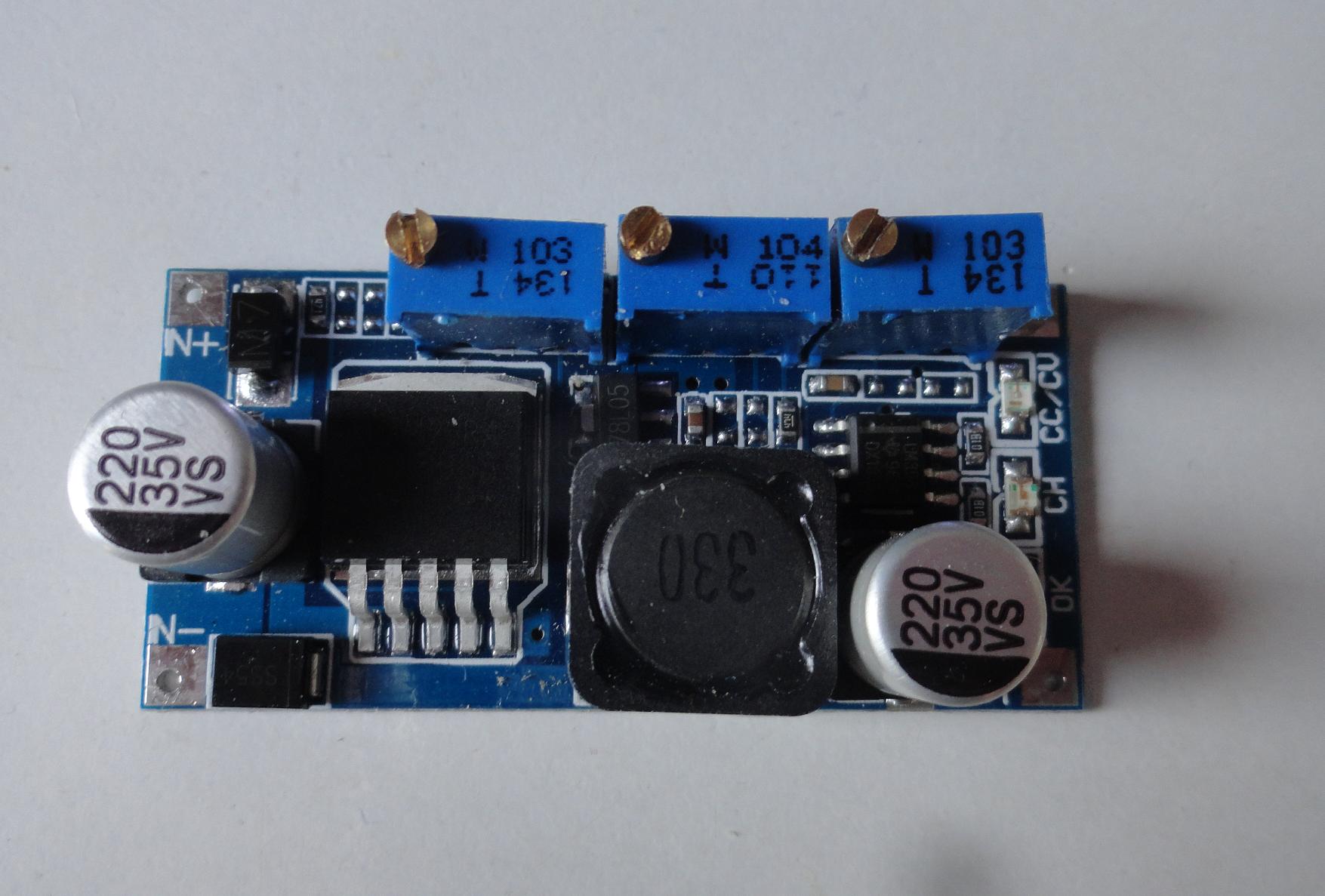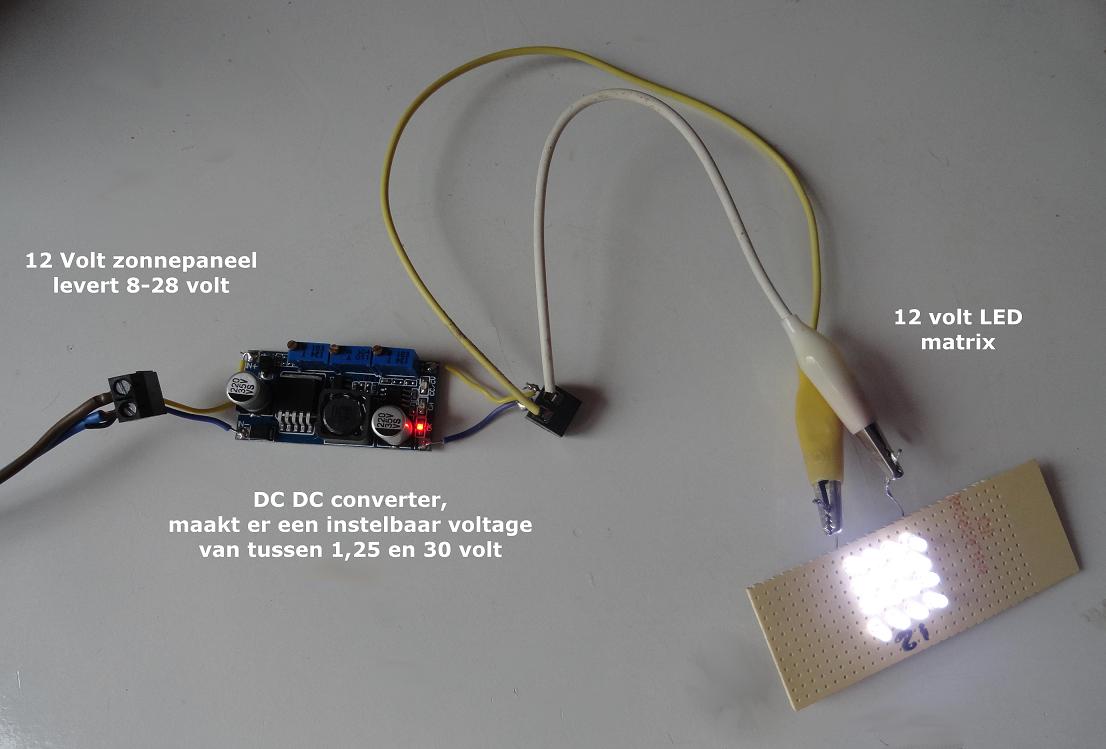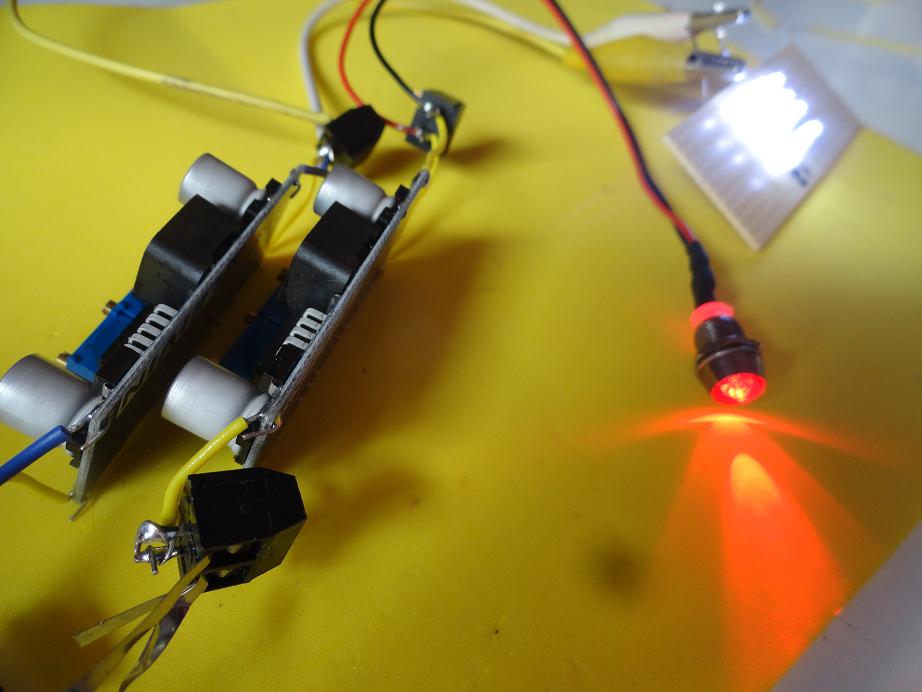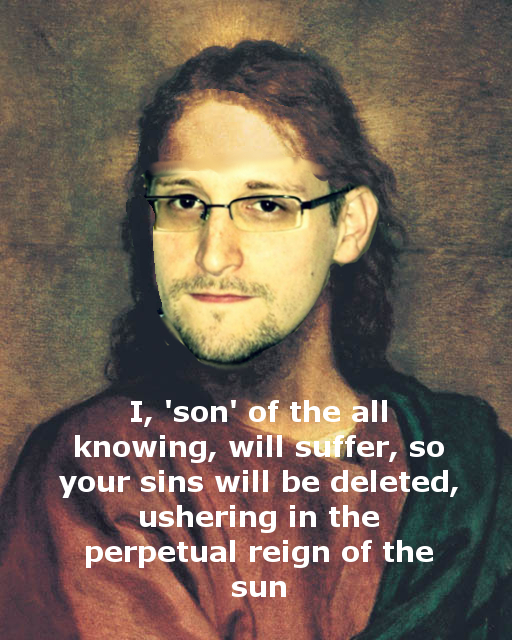In California, the sunny state, three out of four residents would like to invest in renewable energy, yet is unable to. People that rent or have a low credit rating can’t buy and install a solar installation on their property. Now Senator Brown, who was senator before and did a lot for the environment, introduced a new law, bill SB43, that..
SB 43′s pilot program will enable customers of the state’s three largest investor-owned utilities to sign up to participate in shared renewable energy facilities, and receive credits and charges on their utility bill for the energy produced by their share of the project.
There are several ways to look at this, the most superficial is that people can now co-own renewable energy installations. They can be solar, wind or solar thermal, maybe even wave and geothermal. It seems this will bring a lot more cash to the development of these type of installations, but that is not the only thing going on.
This type of system, in which a person that invests $100 gets a return on that money for a long time, is actually an example of a pure transition from carbonbank credit to renewable based credit. It may be a very effective way to get the banking system out of the loop entirely. And we proposed such a system on a more distributed bases before when talking about introducing a ‘Joule’ currency to be handed out by the tax office to people.
The value of renewable energy is determined by the products it helps to make
What happens if you have a big renewable energy plant is that it delivers power to companies that make products. To make these products the companies need money, but the money is given to the co-owner of the energy plant, the consumer. So the consumer can go out with it’s dollar, earned from owning the energy plant into the market and give that money to the producers of products they like. It is a closed loop system that knocks out banks from the equation of the economy all together. No credit is needed for production, not banks are needed to provide credit to consumers. Everybody enjoys the wealth afforded by the sun.
To work properly energy companies will need to be able to create money to pay the divident
Of course the above cycle will be the ultimate result if one would continue to share renewable resources, and more importantly force fossil fuel energy credit to be used to built them, because that is what this bil does (undboubtably strongly against the will of the banks, or behind their backs as they are so focussed on carboncredit and speculation). It may have succeeded because it gives banking power to the utilities.
Energy storage will be equivalent to banking, and should be part of the scheme
Compared to Germany this scheme is somewhat easier to use for a renewable energy transition because a large amount of power from one location is easier to put a value to than power from many households that are partially consumed and shared on a net at unknown distances of the consumers. The big difference between creating energy for consumption and production is barely recognized at all, becuase most people don’t see money as our primary means of allocating energy, fossil fuel energy that is.
Using energy shares, if their value can be calculated correctly in a speculative banking environment, one can democratize and transition away form fossil fuel dependence completely, with one exception : import and export. It is impossible to provide the factories in China with energy produced in California, and money from outside coming in doesn’t have a share of energy waiting to be used. The way this is handled now is that China buys fossil fuels with the USD because the market is set in that currency (still for a large part). This is a condition for the global market, one that Iraq, Iran, Venzuela (Rogue, terrorist states!) all tried to do. The US banks can’t have this happen ever, because their life depends on the global division of production and consumption, their role as creztor and controller of carboncredit.
Money creation should lie in the hands of those that create production capacity (energy)
Money destruction should happen when the production capacity is used (energy is consumed)
Every state that creates either a distributed or central co ownership/share system for energy, and is able to set the price correctly, will be on a course away from carboncredit that nobody can stop. The big step is that the energy producer must be able to create money and put it in the hands of the shareholder. This makes sense because in the case of solar panels, after six or so years they are payed off, but then they still help produce goods and there is still electricity to be sold for abother 30 years.
Nuclear power maskerades economically as renewable energy
The joker that big energy may pull, when it is still entangled with fossil fuel banks, is the nuclear power plant. Nuclear power is produced at next to no cost (read fossil fuel cost), just like solar power when the installation is payed off. Nuclear power distorts prices by pretending to be cheap, because the real costs of the decomissioning and waste containment are simply not communicated in the price. This would be quite useless anyway, because let’s say a nuclear power plant saves money for 40 years, then when it wants to decomission there’s no oil for sale, so the money has no value. This will soon be the case. It shows that money is a means to trade, not a store of production value.
To make the transition clean Brown should make sure nuclear power is priced correcly, and make it explicitly possible for the shared energy plants to create money without the help of the banks. This is the hardest part to achieve, but the more renewable sources there are, the easier it gets to explain the above perspective.
Schaliegas is een foute afslag, die we beter kunnen missen. Op basis van deze post.
Desalinaitie zoals het doorgaans gebeurt is energie intensief. Water wordt onder hoge druk door membranen geperst, het zogenaamde Revers Osmosis (RO) proces. Eerder schreven we al over Freeze desalination, de methode waarbij van water ijs wordt gemaakt, dat de zouten uitstoot en dus zoet water oplevert. Deze techniek is al efficienter dan het verdampen van water met zonnewarmte. Een freeze desalination process kan ook met wind worden aangedreven.
We schreven ook over een electrolytisch process, waarbij een zoutwaterbatterij wordt gebruikt om de zout ionen uit het water te trekken. Deze techniek van Saltworkstech.com leent zich goed voor het gebruik van zonne energie omdat de aandrijvende kracht komt van extra zout water (ingedampt). Hoewel deze techniek 80% zuiniger is dan RO lezen we nog niet van een doorbraak. Dit verbaast niks, want de markt verkoopt primair fossiele brandstoffen, en daarna alles wat ermee gemaakt kan worden. Een process dat deze brandstoffen niet nodig heeft is een vreemde eend in de bijt.
Ook vetzuren kunnen gebruikt worden om zout uit water te halen.
Het bedrijf Okeanos, voortkomend uit de Universiteit van Texas in Austin, claimt nu nog een efficiente manier te hebben gevonden. Het maakt gebruik van electrische velden om ionen en opgeloste deeltjes te sturen en zo uit de vloeistof te verwijderen. Het zou een zeer efficiente techniek zijn.
Het electrische veld wordt los gelaten op zeer kleine waterstroompjes die door een chip stromen, dus het effect wordt met zeer kleine hoeveelheden water bereikt en dient te worden opgeschaald naar bruikbare volumes. Dit kan nog even duren. De kapitaal investeringen zijn gelijk als die van het RO process, maar de lopende kosten zijn natuurlijk veel lager. Hier onder een overzicht van de voor en nadelen van de nieuwe Waterchip ™ techniek:
- COST-EFFECTIVENESS – World-record desalination efficiency = dramatic reduction in operational expenses.
- RELEVANCE – Cost-effective desalination will provide profound economic, political, environmental and humanitarian benefits across the globe.
- ELEGANCE – Operation without extreme hydraulic pressures, massive electrical currents or intense heat sources make for simple, compact installations with small system footprint.
- CLEANLINESS – Operation on alternative energy sources, and/or reduced burden on dirty, coal-powered grid energy results in direct environmental benefits.
- FEASIBILITY
- Pretreatment. No membranes means minimal pretreatment required other than basic sedimentation. Elimination of the need for chemicals, filters, treatment ponds etc. results in massive capital and effective operational savings.
- Post treatment. No post treatment required. Complete disinfection, de-boronation, and heavy metals removal without the use of chemicals, which have to be added and then removed with other technologies in expensive (capex/opex) multi-stage processes.
- Maintenance. No membranes also means no fouling and the minimization of maintenance capital and labor.
- SCALABILITY
- Operating expense scales linearly with output rates – unlike other technologies which require massive operational economies of scale and capital accessories (e.g. energy recovery systems) to reach what might loosely be called “economic competitiveness”.
- Highly modular framework – systems to address from small to large scale (e.g. municipal) needs.
- FLEXIBILITY – On demand programmability for seawater vs. brackish waters means no need for source water dependent configuration/equipment, further enhancing effective operating efficiencies.
- SAFETY
- Bacteria, viruses and particulates are removed as efficiently as salt, without the use of expensive and cumbersome coagulants or chemicals.
- On demand monitoring of system performance in real time
- DURABILITY – no moving parts, no extreme operating conditions (e.g. hydraulic pressures or voltages).
- MANUFACTURABILITY – recent advances in microelectronics fabrication and proprietary designs translate into capital (e.g. system purchase) expenses on par with today’s technologies.
Earlier we wrote about the carbon dependence of the war machine. We reason that as wars are fought over fossil fuels, using fossil fuels, there will be a point at wich world war or even a smaller war becomes unfeasible because both sides can predict they will run out of fuel, cause massive waste of fuel in the rebuilding process. It makes no sense pouring billions of resources into protecting your country if it is being hollowed out by a force you could actually fight effectively, energy, water, biosphere deterioration.
There is a reason why the military are so clear-headed about the climate threat, according to Professor John Schellnhuber, a scientist who briefed the UN security council on the issue in February and formerly advised the German chancellor, Angela Merkel. "The military do not deal with ideology. They cannot afford to: they are responsible for the lives of people and billions of pounds of investment in equipment,"
Now the UK once again stresses the suprapolitical nature of the climate threat. We see that not only is the fragility of our dependence on marginal fossil fuels an issue, but does it seem that climate migration and chaos will disturb world trade and economic interdependence. Globalization, only possible because of fossil fuels (why else would you haul billions of tons of container steal thousands of miles across the world to deliver toothbrushes), will break down, and it is better to make that a controlled process.
"Exterminate all the brutes!" (General Kurtz)
What J. Conrad seems to have meant was that the destrutive process will only end when we get rid of those that don’t care about lives.
Charlie Chaplin : "Brutes have risen to power.."
We think that it is better for the global armies to agree to fight the common enemy, not each other. The fight is not hopeless, in fact, when it is begun right now it will mean victory is certain. Like in a war, the fight is to live as humanity or die in chaos. Now we still have the order necessary. We know the Pentagon is on the same page as the German army as the UK army, as the UN, and all are securing an economic system that is straving from increasing carbon scarcity while supressing renewables to retain the carbon monopoly. Blindly striving for economic growth while knowing it primarily depends on burning fossil fuels that damage the survivability of all makes most governments qualify as insane, delusional, a risk to their population.
Using renewables to fight climate change is the only possible way, but luckily that energy is thousands of times more abundant
Don’t think in terms of fossil fuel resources, think in terms of renewable resources. Then you have 5900 times the fossil reserve available in solar power to change things for the better every single year. We can add wind, we can populate and use the oceans (70% of Eaths surface). It is a solveable problem but we need to sober up from our Ipads to get to the task. The focus has to shift from creating a global elite while creating and destroying a poor underclass to mobilizing all resources and potential to slow down and reverse the CO2 trend.
By working to protect life, we work to protect ourselves
Money is not an issue once you move past it. This is what happens in war, you determine that hands can make weapons and you organize people to do that. They may get food and shelter, but certain things need to happen. Japan held on to this type of treatment of its own people long after WOII, on slave coal mining islands owned by Mitsubishi and other Supercompanies. We don’t have to see the same harmfull things happen today, because fighting climate change is about improving the ability of our planet to sustain life, growing, greening, not destroying and emaciating. The suffering we see is all because of fossil fuel interest protection.
Economic thinking creates vulnerability and dependency
An army would never choose to grow GMO food, it would never choose to require lots of chemicals, logistics and effort to get what it needs. The global economy incentivices just that. Complex processes with more individuals, especially when it comes to the easy part, shuffeling the money. The existence of an easy part and the use of fossil fuels actually making life very easy has warped our system into a top heavy wastefull destruction machine that is destoying us.
It would be an incredible day that the combined armies of the world announced they would institute a single rule of law to govern the end of war and start the climate fight, the fight for survival of humanity. It sounds grotesk, but what about "dead oceans" doesn’t? There will still be brutes that advocate first fighting and then rebuilding, they have no skin in the game. The single decision to fight climate change as humanity and do it with military ratio will make an enormous difference, and may even improve the lives of may by making it all make a lot more sense.
"The Global Standdown or How each of us knows what it takes to be a Messiah"
Send us an email if you have ideas, suggestions, or want to support the effort to info@greencheck.nl
This is happening to Kiribati
WWF reports Norway has invested a large chunk of its Sovereign Wealth fund in 147 different coal, oil and gas companies around the world. This is one of the most sensible things to do if you understand the nature of money (it being fossil fuel credit, or carboncredit). If you don’t you may believe that the money could be moved to a different place for instance a solar panel plant or something. This is not true as we will explain.
Our money gives access to fossil fuels
Money is not valuable in itself. It is either paper or a digital number of some kind, and it has no power in itself to create wealth. The origin of the wealth we access with our money is a system of production that is driven mainly by fossil fuels. If the producers of our shoes, clothes, cars, houses, could not swap the money we gave them for fossil fuels, like diesel, gasoline, gas, oil, or derivatives, like plastic, fertilizer, they would not be able to deliver their goods for very long. This is what we call the carboncredit system, and it requires actual monitoring of the relation between liquidity and the fossil fuel supply.
Products are made with energy, People are rewarded with energy
So a bread at the baker cotst 0,75 Euro, part of that goes to lighting the shop (energy), to paying the clerk (so he can buy food, stuff, requiring energy), to logistics (energy), to truckdriver wages (so he can buy food, stuff, requiring energy), to the baking oven (energy), to the people in the factory (so they etc.), to the flour logistics, the mill, the farmer, at every step the money is used to buy energy that is largly fossil fuel based. If the energy is renewable than chances are it is very cheap or free. The same chain as this simple process has goes for every other product in our economy, from tulips to Boeing Dreamliners. So this establishes the fact that money is carboncredit.
Does a company that extracts fossil fuels need carboncredit?
So do oil extracting companies need this carboncredit? Of course the answer is NO. If money is gold they are the gold mine, they don’t need gold to dig up gold. In the case of oil it’s even more direct, you need diesel to run an oil rig, not money. You may extract crude you can directly use to power your drilling rig. This is the way it has to have been in the early days. If you don’t have any fuel as a fossil fuel extraction company you would be out of luck, and have to sell the company, but as soon as you have some gas, oil, coal, you can trade and use it directly. This is why it is so easy to hide that while the cost of one barrel of tar sand oil is close to the saudi oil before, the carbon cost of it is much higher (meaning the fossil fuel expended in turning tar sand into oil).
How much oil does it take to extract one barrel of oil? More and more
Now what does it mean for an oil company to have money in reserve, to have money invested in it. Nothing more than that it can use that money to move fossil fuels around. This is smart because if they would simply create a fossil fuel account (using barrel futures as their own money) they would break the spell. People would avoid the banks and go to the oil companies, and maybe even tell them they had no right to a cut of the wealth created, because after all they just found the stuff in the ground. It’s everywhere. It is the use of money that allows banks to control the abilities of companies to compete, even in the fossil fuel branch.
If you reinvest the interest on investment in fossil fuel companies, you gain nothing
Does a billion dollars invested in fossil fuel companies represent a store of wealth? NO. Because the money may help keep the companies going, but when the fuels run out they companies will collapse, and the money can only be used to buy fossil fuel from someone else. While it is invested one can say it gives right to a percentage of the output of the companies. If that money is saved it means nothing needs to be delivered while it is available, so really no value or wealth is accumulated. So the companies invloved only have to worry about whether they will be shorter lived than the sovereign wealth fund and they can give any interest anyone wants. Of course in close cooperation with the banks creating the money.
The more money is put in saving accounts, the less fossil fuel is expended
Actually it is very convenient, almost necessary to park the money in these companies. Because if Norway would leave the money in circulation it would be used to buy fossil fuels, so saving it is a good way to limit the consumption. Saving and paying interest is the way banks ensure fossil fuel prices remain constant, and inflation doesn’t happen. That is why we call it the carbon-credit system, because banks really have to watch the relation between carbon and credit for their economy (carbon utilization process) to function well. The more money can be taken off the market, the better it is for them anyway, because they will be able to sell more loans. Ideally all money in existence is part of a tripple A rated loan. In reality cash savings and bankruptsies add money that does not have a label "owed to the bank" on it, which is why banks hate that kind of stuff. Spaculation is a great way to lose money out of the non bank economy, the hands of people that could use it to buy actuall burn once fossil fuel.
Savers are people that don’t get the carboncredit system, speculators are people that do. That is why the banks are such enormous speculators
So what about the Norwegian Sovereign Wealth Fund? The part that is invested in fossil fuel companies is worthless, especially if the plan is to reinvest. The idea the sovereign wealth fund represents any value in Kroner once Norwegian oil runs out is rediculous Who would be interested in those Kroner unless they gave access to fossil fuel. The only wise investment for the oil revenues is in renewables, because those will be able to deliver actual energy to produce wealth in the future. Sadly this is not on the agenda of the banks or Statoil, not in a way that makes oil itself obsolete, the right way. Maybe this post helps the Norwgians to see their delusion. Now there is still time to use oil to build the power sources of the future. If the oil has run out, it will be much harder. Of course we know how to do it even then and are looking for investors! 😉
The economic crisis is an energy crisis, banks keep money out of circulation to hide the shortages of fossil fuels!
Wie wel eens met een 12 volt zonnepaneel heeft gewerkt weet dat er zelden 12 volt uitkomt. Meestal is het meer, zeker als je het met een volt meter meet. Dit komt omdat het voltage van een zonnepaneel een gevolg is van het samenvoegen van de voltages van de cellen, elk ongeveer 0,52 Volt, en dat voltage variert afhankelijk van de instraling en hoeveel electronen worden afgevoerd. Bij de panelen op het dak is dat geen probleem, want daarbij wordt een omvormer gebruikt die 300-600 Volt DC omzet in 220 AC. Deze omvormers zijn echter duur, dus de keuze is of te gaan voor echte grote panelen, of voor een klein 12 volt paneel met accu en acculader. Er is ook een middenweg, die redelijk goedkoop is.

De linker instel potentiometer is bepaalt het voltage
Hierboven een dc/dc converter, die van een voltage tot boven de 30 Volt exact maakt wat u nodig heeft, dus 5 Volt voor elecronica, 12 Volt voor iets anders, 8,4 Volt om een NiMh batterij te vervangen. Dit opent de weg naar een groter gebuik van 12 Volt panelen voor kleine toepassingen. Dit soort converters, zogenaamde buck converters, nemen steeds kleine hapjes stroom, elk hapje laat het voltage oplopen in de condensator links (ronde ding met 220, 35v VS), tot het gewenste voltage is bereikt. Dan wordt de input uitgeschakeld en kan de stroom naar de output, waarbij het voltage weer afneemt. Dit schakelen gaat heel snel zodat het uiteindelijke voltage rond de ingestelde waarde blijft. Het vermogen wordt bepaald door de grote van de hapjes die genomen kunnen worden, en dus door de grote van de condensator. In dit geval is het 1-2 Ampere.

Het vermogen van deze dc/dc converter is maximaal 15 Watt, maar dat kan worden vergroot. De electronica blijft ongeveer gelijk. Het wordt met dit onderdeel makkelijker om electronica direct aan een zonnepaneel aan te sluiten, meestal is het varierende voltage een probleem zonder accu, nu kan ook zonder accu worden gewerkt. Overigens kan de energie aan de paneel kant gebufferd worden in een grote condensator die het voltage aankan, dus een van 35 Volt. Hierdoor wordt het piek vermogen wat vergroot.
DC verlichting
Missschien heeft u een kantoor of woning met veel donkere plekken. Dat is met behulp van een klein paneel ()50 Watt oid), wat LED lampen en deze converters permanent te verhelpen. Indien u hierover vragen heeft horen wij het graag. We hebben al eerder geschreven over LED dagverlichting, waarom zou u betalen voor licht dat buiten af te vangen is, zeker met een installatie die wel 30 jaar kan meegaan.
Invoer Voltage
Het invoer voltage van zonnepanelen kan wellicht worden geregeld via een voltage deler zoals deze. Een aantal panelen dat meer dan 35 volt levert kan zo in serie worden geschakeld, en dan gedeeld tot een voltage onder de 35 Volt, bv. 24 Volt (maximum voor laagstroom). De converters kunnen niet als voltage deler worden gebruikt. Ze zijn wel parallel te schakelen op een ‘bus’ van 24 Volt.

Twee dc/dc converters parallel
Kombinatie met Ultracapacitors
Ultracapacitors zijn een type condensator dat lading opslaat door moleculen in een electrolyt net niet te laten reageren, alleen herorienteren. Daardoor is ligt het maximum potentiaal van deze condensators altijd in de buurt van een batterij potentiaal van een bepaald electrolyt, dus bv 2,7 Volt voor KoH. Gaat men daar boven dan veroorzaakt dat al snel onherstelbare schade. Door de duurzaamheid van deze condensatoren zijn ze echter wel aantrekkelijk in te gebruiken tov accus. Ze zijn echter niet in serie te schakelen zonder veel capaciteitsverlies.
Wait, don’t leave! Just doing a little philosophical experiment here. There is a striking analogy going on, or allegory, with possibly revolutionary consequences, and definite relevance for renewables..

The first messiah was a son of God, the almighty and allknowing..
Snowden worked for the NSA, Homeland security, US defence (as a subcontractor), was the NSA all knowing? Apparently yes, and almighty? Linked to DoD, FBI, CIA? Ask Michael Hastings, Aaron Schwartz..
So that being established, the first messiah died for our sins, so they be forgiven..
If there is no data retained on our actions, vis a vis the almighty corporate military industrial complex, our sins are forgiven
Already the chase of Snowden is causing a backlash and investigation into what facts, events, communication is recorded and kept for future prosecution. We are already seeing demands for removal of data to be deemed ‘sins’ before the law. At the same time the facts about corporate spying, covert actions using the same infrastructure are coming out, and will mean a backlash against those companies (some named specifically in a UK study, Shell, Nestle, McDonalds). The ‘sins’ of those companies will probably not lead to prosecutions, but there must be movement to ensure that nobody records anything that constitutes an invasion of privacy. Information that could otherwise be used to construct a case if the individual in question turned out to be a threat to any of the big companies (we are not talking terrorisme here).
Not only our sins will be forgiven if as a result of public awareness of data retention data is deleted, but it will also end an unfair advantage of big corporations, it wil mean an end to the carbon credit dominance, the rule of big oil over the market, because ultimatly big oil, carbon, coal and gas are needed to keep the global economy going, they are the drivers and and beneficiaries. To keep the oil being wasted in or for the US they needed the surveillance, eavesdropping, on whoever threatened the rule of these companies.
A video about how Homeland Security would wiretap Jezus
Awareness of surveillance and data retention may break the power of these companies, especially when it is paired with a cleanup of the banking sector, something that seems to be happeninge as the US loses trust around the world. People like Max Keiser will tell you all about it.
Wealth = Knowledge x Skills x Raw materials. Money is no part of the equation
What all this means is a fair playing field for people to improve their fate. Renewables will win because there is so much potential, and harvesting is becoming easier and easier. Simple techniques like contour trenching can restore farmland in dry areas, the renewable industry will certainly benefit from less corporate spying, less speculation because it is intrinsically productive, as opposed to carbon economic activities, that usually consume carbon.
Wealth means peace, energy security means no need to antagonize Iran, no need to stoke war in Syria, no need to suppress other countries over their resources. Snowden can be the cathalist to usher in an era of unhampered renewable energy growth driven by humanities desire to live in peace and prosperity..
